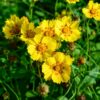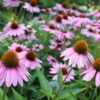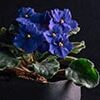When it comes to creating a beautiful and thriving garden, mulch is a gardener’s best friend. But if you share your home with a furry companion, not just any mulch will do. You need to ensure that your garden is not only a sanctuary for your plants but also a safe place for your pet to romp and explore. That’s where fluffy pine mulch comes into play. It’s a fantastic option for pet owners who want to keep their gardens lush and their pets safe.
Key Takeaways
Fluffy pine mulch is a pet-friendly option that is safe for dogs and looks great in the garden.
Some common mulches can be dangerous for pets, causing allergic reactions or gastrointestinal issues.
Pet owners should opt for natural, untreated wood mulches like fluffy pine, cypress, or cedar.
Proper application of fluffy pine mulch can help prevent ingestion by curious pets.
Regular maintenance of your mulched garden will help keep it safe and attractive for both your plants and pets.
“Pine Needle Mulch – Covers 240 Sqft …” from www.amazon.com and used with no modifications.
The Quest for a Dog-Safe Garden
Creating a dog-safe garden goes beyond just a fence and some shade. It’s about selecting each element with your pet’s well-being in mind. Mulch, in particular, can pose a risk if not chosen carefully. Some mulches contain chemicals or are made from materials that can be toxic or harmful if ingested by dogs. That’s why it’s crucial to do your homework and pick a mulch that’s as friendly to your dog’s paws as it is to your plants.
Fluffy Pine Mulch: A Safeguard for Paws and Plants
Fluffy pine mulch is a standout choice for pet-friendly gardens. It’s natural, soft, and devoid of the chemicals and dyes found in some other mulches. Plus, its pleasant scent is a bonus for the senses. But the real win is its safety profile for dogs. Unlike cocoa mulch, which contains theobromine and can be toxic to dogs, fluffy pine is non-toxic and gentle on paws, making it a worry-free choice for pet parents.
Understanding Pet Safety in Garden Mulching
As a responsible pet owner, understanding the potential dangers of common mulches is essential. Some mulches can be appealing to dogs, who may try to eat them out of curiosity or boredom. This can lead to a range of health problems, from digestive blockages to poisoning.
The Hazards of Common Mulches for Pets
Let’s take a closer look at some of the common mulches that might put your pet at risk. For instance, certain mulches can be harmful if pets decide to pee on plants or ingest them.
Cocoa Mulch: Often chosen for its rich color and chocolatey smell, cocoa mulch can be deadly for dogs due to theobromine.
Rubber Mulch: While it’s durable and provides good insulation, rubber mulch can be chewed into pieces and swallowed, leading to gastrointestinal issues.
Dyed Wood Chips: The dyes and chemicals used in these wood chips can be toxic if ingested.
Recognizing Pet-Friendly Mulch Options
Fortunately, there are safer alternatives to these risky mulches. Natural wood mulches like fluffy pine, cypress, and cedar are excellent choices. They are untreated, free of harmful chemicals, and provide a comfortable surface for pets. Moreover, cedar mulch has the added benefit of being a natural insect repellent, which can help keep your pet free from fleas and ticks.
Example: A local pet owner, Sarah, noticed her dog, Max, was often nibbling on the garden mulch. Concerned, she switched to fluffy pine mulch. Not only did Max lose interest in chewing on the mulch, but Sarah also found that the pine mulch improved the soil’s acidity, benefiting her hydrangeas.
Understanding the potential hazards and recognizing safe options is the first step in creating a pet-friendly garden. In the next sections, we’ll delve deeper into why fluffy pine is the ideal choice and how to properly introduce it to your garden.
Qualities of Safe Mulch for Dogs
When it comes to mulch that’s safe for dogs, you’ll want to look for a few key qualities. First and foremost, the mulch should be non-toxic, meaning it doesn’t contain any chemicals or substances that could harm your pet if ingested. It should also be free from sharp objects or pieces that could injure your dog’s paws or mouth. Additionally, the mulch should not be appealing to your dog as a snack – some dogs are attracted to the scent or flavor of certain mulches, which can lead to them eating it and potentially getting sick. Finally, consider mulches that can provide a deterrent to pests that could harm your pet, such as fleas and ticks.
Steps to Introducing Fluffy Pine to Your Garden
Introducing fluffy pine mulch to your garden is a simple process that can be done in a few steps:
First, remove any old mulch that may be toxic or unsafe for your dog. This might include mulches with cocoa bean shells or those that have been treated with chemicals.
Next, prepare the area by weeding and leveling the soil to ensure even application of the mulch.
Spread a layer of fluffy pine mulch around your plants, typically 2 to 3 inches thick, to ensure adequate coverage without suffocating the plants.
Water the mulch lightly to help it settle and stay in place.
Finally, introduce your dog to the newly mulched area under supervision to monitor their reaction and ensure they don’t try to eat the mulch.
Mulch Application: Ensuring a Pet-Safe Environment
Applying mulch correctly is essential to creating a pet-safe environment in your garden. The way you apply mulch can impact its effectiveness and safety for your pet. For example, applying too much mulch can lead to excess moisture retention, which can harbor mold or fungi that could be harmful to your pet. On the other hand, applying too little may not provide the benefits you’re looking for, such as weed suppression and soil temperature regulation.
Most importantly, ensure that the mulch is evenly distributed and not piled up against the stems or trunks of plants, as this can cause rot and invite pests. It’s also crucial to keep an eye on your pet during the first few days after applying the mulch to make sure they’re not trying to eat it or dig it up.
Applying Pine Mulch the Right Way
To apply fluffy pine mulch the right way, follow these steps:
Clear the area of debris and weeds, and ensure it’s level before you start.
Apply a 2- to 3-inch layer of fluffy pine mulch around your plants, but not directly against them to prevent rot.
Water the mulch after application to help it settle and to reduce the likelihood of your pet disturbing it.
Replenish the mulch as needed, usually once a year, to maintain its effectiveness and appearance.
Monitoring Your Pet’s Interaction with New Mulch
After introducing new mulch to your garden, it’s essential to keep a close eye on your pet. Some dogs may be curious and want to explore the new addition to their environment. Watch for signs of digging or eating the mulch, which could indicate that your pet finds the new mulch interesting or tasty. If you notice your pet interacting with the mulch in a way that could be harmful, consider using a gentle deterrent like a pet-safe repellent or a physical barrier to prevent access to the mulched areas.
Additionally, observe your pet for any signs of allergic reactions or discomfort after being around the new mulch. Symptoms such as excessive scratching, redness, or irritation could indicate an allergy to the mulch and may require a switch to a different type.
Keep an eye on your pet’s behavior around the new mulch.
Watch for signs of digging, eating, or allergic reactions.
Use deterrents or barriers if necessary to keep your pet safe.
Consult your veterinarian if you notice any adverse reactions.
Remember, the key to a pet-safe garden is vigilance and choosing the right materials from the start.
Maintaining a Pet-Friendly Garden Year-Round
Consistent upkeep is essential to maintaining a garden that’s both beautiful and safe for pets throughout the year. Seasonal changes can affect how mulch performs and how often it needs to be replaced. Keeping an eye on the condition of your mulch and making necessary adjustments is key to ensuring your pet’s safety and your garden’s health.
Seasonal Changes and Mulch Maintenance
As the seasons change, so do the needs of your garden and the behavior of your mulch. In the spring and fall, you may need to refresh or replace your mulch to prepare for planting or to protect against colder temperatures. During the hot summer months, mulch helps retain moisture, which is beneficial for plants but can also lead to mold or fungi if not monitored. In the winter, mulch acts as an insulator for plant roots but can become compacted and less effective over time.
Regularly inspect your mulch for signs of decomposition or displacement, and fluff it up to maintain its protective properties. If you notice any mold, remove the affected mulch immediately to prevent any risk to your pet.
Organic Pine Mulch vs. Alternatives: Long-Term Effects
When comparing organic pine mulch to alternatives like rubber or dyed wood chips, the long-term effects on your garden’s ecosystem and your pet’s health are clear. Organic pine mulch decomposes naturally, enriching the soil with nutrients and promoting a healthy garden. On the other hand, rubber mulch doesn’t break down, offering no nutritional benefits and potentially leaching chemicals into the soil. Dyed wood chips can fade and lose their aesthetic appeal, and the dyes may be harmful if ingested by pets. For more information on maintaining a pet-friendly garden, consider reading about how to grow carrots in container gardens, which can be a safe and enjoyable activity for you and your pets.
Therefore, fluffy pine mulch is not only a safe choice for your furry friends but also supports the long-term health of your garden.
FAQs
How often should I replace fluffy pine mulch?
Fluffy pine mulch should generally be checked and potentially replaced once a year. However, if you notice it’s breaking down more quickly or if there’s any sign of mold or fungus, it’s important to replace it sooner to maintain a safe environment for your pet.
Can Fluffy Pine Mulch deter pests that might harm my pet?
Yes, fluffy pine mulch can help deter certain pests. The natural oils in pine can repel fleas and ticks, making it a beneficial choice for pet owners. Besides that, it’s also great for keeping weeds at bay, which can harbor harmful insects.
Is fluffy pine mulch safe for all dog breeds?
Fluffy pine mulch is generally safe for all dog breeds. However, if you have a particularly curious dog that likes to chew on anything and everything, you’ll want to monitor their interaction with the mulch closely. If ingestion occurs, consult with your veterinarian.
What should I do if my dog tries to eat the pine mulch?
If your dog tries to eat the pine mulch, distract them with a toy or a treat to redirect their behavior. Consistently discourage them from chewing on the mulch. If they ingest a large amount, contact your veterinarian as it could lead to gastrointestinal discomfort or blockages.
Are there any plants that particularly benefit from fluffy pine mulch?
Plants that thrive in acidic soil, such as azaleas, rhododendrons, and blueberries, can particularly benefit from fluffy pine mulch. As the mulch breaks down, it can help to acidify the soil, creating an ideal environment for these types of plants.
In conclusion, choosing fluffy pine mulch for your garden is a smart decision for pet owners who want to create a safe and attractive space for their pets and plants. By understanding the risks of common mulches, recognizing safe options, and applying and maintaining your mulch properly, you can enjoy a beautiful garden that your furry friend can enjoy without worry.
When considering the safety of your pets in the garden, it’s essential to choose the right type of mulch. Fluffy pine is often recommended as a dog-friendly garden base, as it is less likely to harm your furry friends if they decide to take a nibble. Moreover, it’s soft and can be comfortable for pets to walk on, and its natural scent can be a pleasant addition to your outdoor space.






